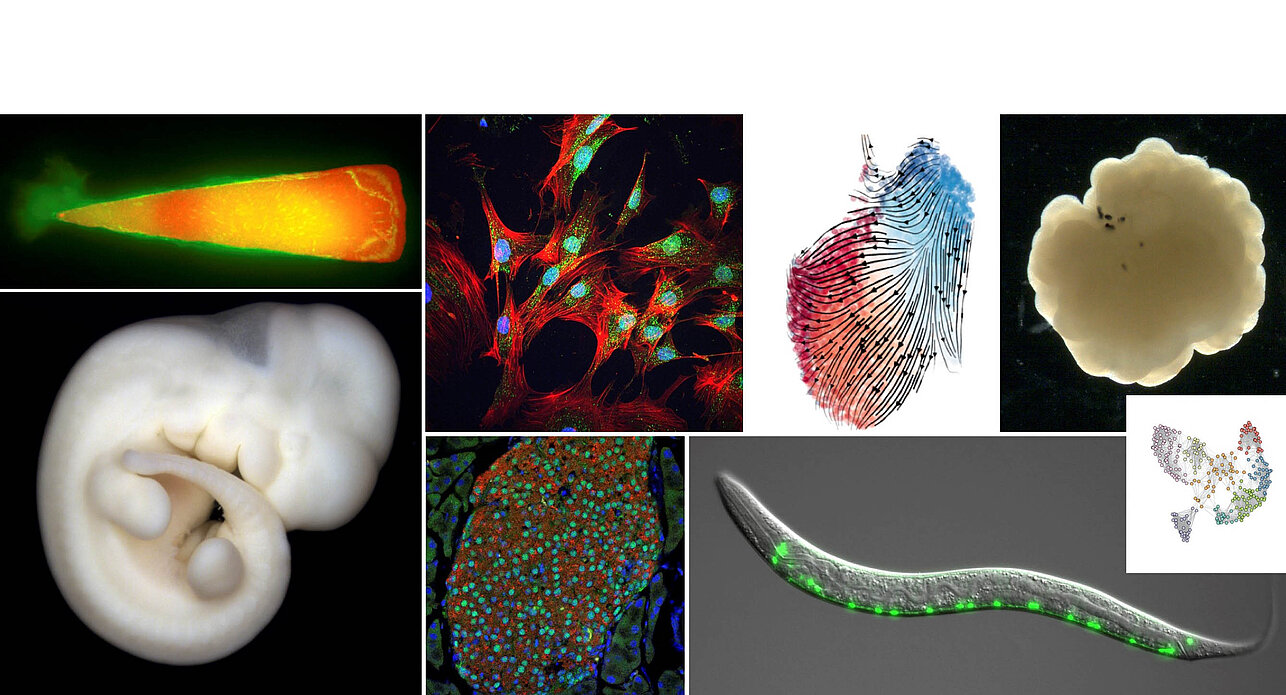
Developmental Biology and Stem Cells
Development and stem cells
DEPARTMENT HEAD
Welcome to the homepage of the department of Developmental biology and stem cells.
Here, you can find information about the research groups that contribute to the life of our department.
On a broad level, all groups share common interests in cell biology, developmental biology and cell biophysics. This permits rich and overlapping scientific goals, including the study of :
- gene-regulatory networks and mechanisms controlling stem cell fate cell cycle, cell plasticity and aging;
- investigating genetic mechanisms and signaling pathways guiding embryonic development and organ function in health and disease;
- the integration of biochemical, biophysical and mathematical approaches to understand nuclear dynamics, cell fate and tissue organization.
A major strength that complements these shared goals is the diverse range of models used (cells, yeast, worm, fish, chick, mouse, organoids) in combination with a variety of techniques, ranging from -omics approaches (proteomic, genomic, epigenomic), single cell studies, high-end and live-cell imaging, microfluidics, organoids and mouse models. Accordingly, research in the department advances understanding of basic biological processes, with importance to human health in several fields, such as cancer, regenerative medicine, diabetes and aging.
Scientific Keywords: Cell biology, Cell cycle, Stem Cells, Development, Differentiation, Gene regulation, Biophysics, Transcription Factors, Aging, Plasticity, Organoids.
Please read the detailed summaries on each team’s website to find out more about their particular research expertise. The working language of our department is english.
If you are interested in joining us at any level of your career, please directly contact the PI of the team that interests you. We are always interested to hear from new researchers, and to receive spontaneous applications for PhD and postdoc positions. Teams are always looking to host master’s students from both local and National universities, as part of both the M1 and M2 training programs.
Teams





Common Mechanisms of Development, Cancer and Aging
Team Leader : Bill KEYES

Syncytial cells biology
Team Leader : Minchul KIM

Brain development and physiology
Team Leader : Wojciech KREZEL

Nuclear organisation and division
Team Leader : Manuel MENDOZA

Stochastic Systems Biology of Gene Regulation
Team Leader : Nacho MOLINA

Molecular biology of B cells
Team Leader : Bernardo REINA SAN MARTIN



Cell physics
Team Leader : Daniel RIVELINE
